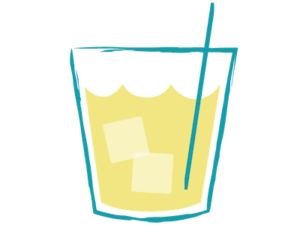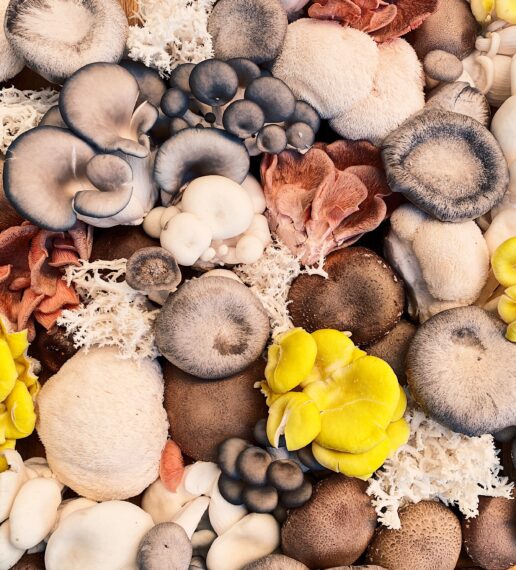Natural Electrolyte Drinks: Everything You Need To Know
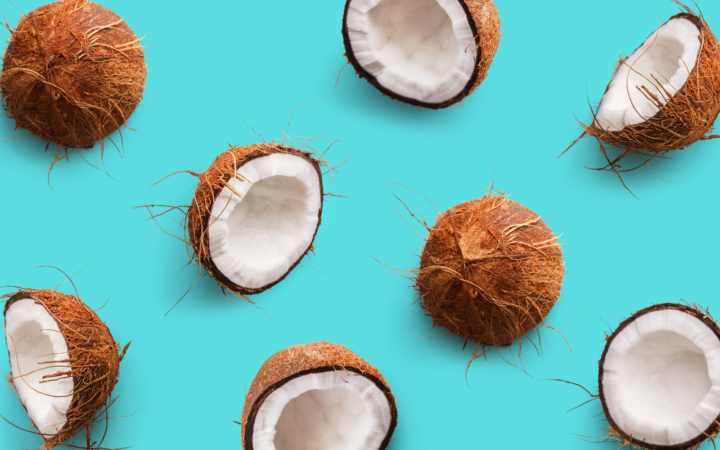
“Brawndo with electrolytes: it’s what plants crave!”
Who can forget this classic joke from the movie Idiocracy?
While it’s funny to joke around about drinking sports drinks instead of water, your body truly does need electrolytes.
Hold on – this isn’t a free pass to chug your favorite sports drink. In fact, that drink likely contains high levels of sugar that can sabotage your healthy lifestyle.
Instead, check out these natural electrolyte drinks for all the substances your body needs and nothing it doesn’t.
What are Electrolytes?
Electrolytes are special substances that hold either a positive or negative electric charge. You can find electrolytes in specific minerals. These minerals include:
- Potassium
- Sodium
- Calcium
- Magnesium
- Phosphate
- Bicarbonate
- Chloride
In your body, electrolytes are present in your blood, sweat, and urine – so those sports drink commercials weren’t lying in that you need to replenish your electrolytes after a sweaty workout.
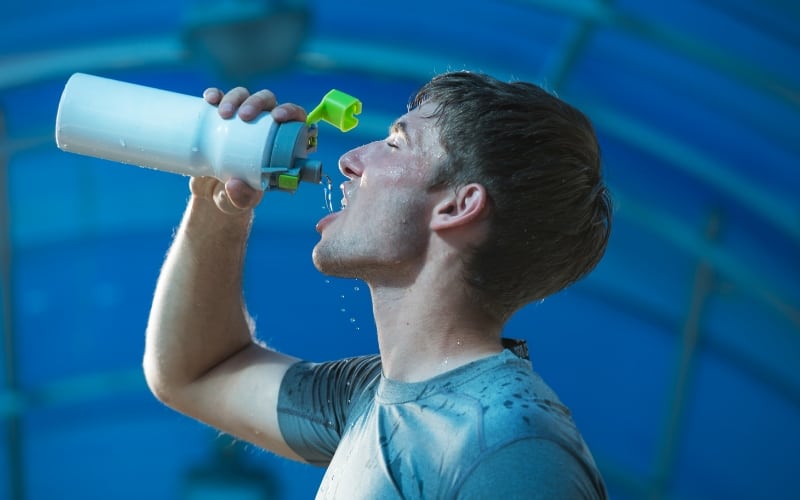
The Importance of Electrolytes
If you haven’t noticed, the substances listed above are essential for several bodily processes. Your body needs electrolytes for a broad range of functions.
1. Nervous System Support
Your brain and body rely on your nerve cells to communicate with one another. Your brain sends an impulse through your nerves and this tells your body to complete specific tasks.
Believe it or not, electric charges generate this nerve communication.
While most modern Western diets contain way too much sodium, this doesn’t mean that sodium is a bad thing in general.
Your body needs adequate levels of sodium – a key electrolyte – to generate nerve impulses and complete processes throughout the entire body.
2. Muscle Contractions and Development
Electrolytes magnesium and calcium are essential for healthy muscle contractions and development.
When you imagine calcium, you may immediately think of bone health – not muscles. However, calcium is an essential electrolyte that helps muscle fibers move freely and smoothly.
Magnesium, another electrolyte, is also critical for healthy muscles.
While calcium helps muscles contract, magnesium ensures muscles are able to adequately relax.
That’s why when you’re lacking enough magnesium in your diet, you’ll begin to suffer from frequent cramps or Charlie horses. These cramps are caused by an overabundance of calcium because magnesium acts as a calcium blocker.
Together, the electrolytes calcium and magnesium keep muscles functioning at optimal levels.
3. Hydration
You’ve probably noticed that when you consume too much sodium, your body tends to retain water.
While too much water retention is unhealthy, you still need to retain some level of water for healthy cell processes.
Without enough water, your skin loses its supple feel and your cells shrink.
The electrolyte sodium plays an important part in regulating osmosis by helping water flow inside and outside cells in a controlled fashion.
When cells contain too much water, they erupt. When cells don’t contain enough water due to dehydration, they shrivel up. (1) Proper levels of sodium are crucial for maintaining the perfect balance.
You’ve surely realized that when you eat too many potato chips or bacon, you feel extra thirsty – that’s because your cells’ osmosis is thrown off from excess sodium.
4. Healthy pH Balance
While the alkaline diet may contain plenty of pseudosciences, there is some truth to the idea that your body needs to maintain a proper pH level.
You don’t need to test your urine with strips or create a strict diet to keep your body in a healthy range – just consume adequate natural electrolyte drinks.
When you give your body the right electrolytes like sodium, calcium, and potassium, it can regulate its pH level just fine on its own. (2)
7 Signs Your Electrolyte Levels are Off
In most cases, you won’t notice any slight variations when your electrolytes are too high or low. However, when this happens for a long period of time, the situation can actually turn deadly. (4)
If you’ve ever been sick to the point where you can’t even keep water down, you may have needed to visit the hospital to replenish your electrolytes. Excessive diarrhea, sweating, and vomiting can cause your body to expel water and electrolytes as well.
When your electrolyte balance is off, you may notice the following symptoms.
- Extreme fatigue or tiredness
- Confusion or lack of concentration
- Convulsions or tremors
- Muscle cramps
- Weakness
- Irregular heartbeat (5) (remember that your heart is a muscle)
- Pins and needles in your extremities

The Health Benefits of Proper Electrolyte Balance
A healthy electrolyte balance is critical for supporting cell processes throughout your entire body.
You can make sure you consume enough electrolytes by eating foods with magnesium, bicarbonate, phosphate, calcium, and potassium. Don’t worry – you probably already consume enough sodium and chloride through salt added to everyday foods.
The trick isn’t to consume a lot of these electrolytes, but rather to keep them balanced.
When your electrolytes are balanced, you’ll feel:
- Energized
- Focused
- Motivated
- Fast and efficient
Since magnesium plays an important role in mental health and muscle function, you may also notice fewer panic attacks, tachycardia episodes (fast heartbeat), painful muscle cramps, and symptoms of depression when you consume enough of this mineral.
Magnesium is specifically mentioned here because it’s less abundant in average Western diets.
The Benefits of Electrolytes Post-Workout
When you sweat, your body expels sodium and chloride. Truth be told, you don’t need to worry too much about replenishing these electrolytes unless you tend to complete intense workouts of two-hours or more.
However, since electrolytes like magnesium and calcium play such important roles in muscle health, it’s important to consume enough of these nutrients.
You can find calcium in plenty of foods besides dairy—many leafy greens contain high levels of calcium. However, this doesn’t mean you’re getting enough. According to the National Institutes of Health, most people don’t consume enough calcium – especially young girls and women. (6)
Did you know that you need more calcium as you age?
As you age, it becomes more difficult for your digestive system to process and absorb calcium so you need to consume more to ensure your bones and muscles receive enough of this vital electrolyte.
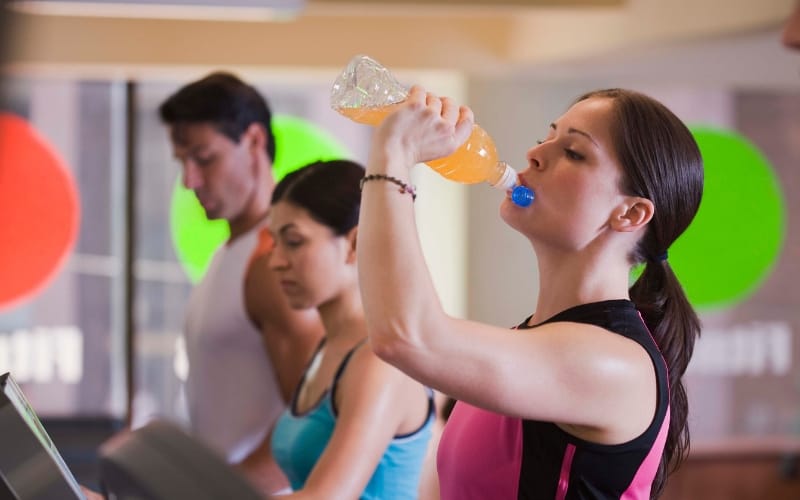
Can’t I Just Have a Name-Brand Sports Drink?
Name-brand sports drinks contain high levels of both sodium and sugar.
No one needs a ton of sugar, and unless you’re sweating profusely for hours-on-end, you really don’t need the extra sodium either.
Instead, opt for natural electrolyte drinks without added sugar to keep your levels in check.
Natural Electrolyte Boosters (Without Tons of Sugar)
Gatorade, Powerade, and pretty much anything with the suffix “ade” contains way more sugar than your body needs.
However, you still need to make sure you consume enough electrolytes to moderate your muscle, nerve, and cell function.
These substances can help you do just that.
1. Coconut Water
Coconut water is nature’s energy drink. You can feel confident hyping coconut water to the fullest because it contains a whopping five key electrolytes: potassium, magnesium, calcium, phosphorus, and sodium.
2. Cactus Water
You may not think you need to drink cactus water unless you’re stranded in the desert but it actually provides some solid electrolytes.
With cactus water, you get a low-sugar alternative to Gatorade packed with potassium.
3. Lemon Juice
Did you know that citrus fruits contain hefty levels of calcium?
That’s not all—lemon also boasts some magnesium, potassium, and sodium.
4. Lime Juice
Like lemon juice, lime juice also contains calcium, magnesium, and potassium.
Keep in mind that these citrus fruits should be combined with other sources of magnesium and potassium for ultimate electrolyte replenishment because they don’t contain much– but it’s better than none at all.
5. Himalayan Salt
Himalayan salt is a powerhouse of electrolytes. It contains all six electrolytes you need to keep your nerves, brain, and body functioning at optimal levels.
6. Bone Broth
Bone broth is the perfect source for electrolytes that are difficult to find in other foods, like magnesium and potassium.
Plus, bone broth is packed with other awesome vitamins and minerals so it makes a perfect post-workout liquid snack.
5 Easy Homemade Electrolyte Drinks
You can easily make your own homemade and delicious natural electrolyte drinks without too much sugar or salt. Try a few of these recipes or create your own unique combinations.
- Green tea, lemon juice, and a pinch of Himalayan salt
- Coconut water and lime juice
- Filtered water, lemon juice, lime juice, and a pinch of Himalayan salt
- Cactus water, banana, and lime juice
- High-calcium almond milk and banana
- Banana, coconut water, and magnesium powder
- Black tea made with coconut water and lime juice
The Bottom Line
Electrolytes are vital for just about every function and cell process throughout your entire body. When your electrolytes are out of balance, you’ll feel tired, sluggish, unable to focus, and you may have a fast heart rate.
While it’s easy to consume enough sodium and chloride in your regular diet, calcium, magnesium, and potassium take a little more effort.
Instead of reaching for a sugar and salt-laden sports drink, try these natural electrolyte drinks for a refreshing twist.
